Resources (827 found)
ACSC/APF 2014 Post Conference Report
As a member of the Association of Southeast Asian Nations (ASEAN), Myanmar accepted the gavel that symbolizes the ASEAN presidency. This was a historic moment since this is the first time Myanmar has taken the Chair since it became a member of ASEAN. As Chair, Myanmar is responsible for hosting many important regional forums and events during 2014.
The ASEAN Civil Society Conference (ACSC), also known as the ASEAN Peoples’ Forum (APF), is held independently by the ASEAN Chair country in advance of, and parallel to, the official ASEAN Summit, which is attended by ASEAN and regional leaders. The first ACSC/APF took place in Malaysia in 2005. Since then it has taken place in the Philippines (2006), Singapore (2007), Thailand (2009), Vietnam (2010), Indonesia (2011), Cambodia (2012), Brunei (2013) and this year in Myanmar (2014). The 10th ACSC/APF took place on 21 – 23 March 2014 at the Myanmar Convention Center in Yangon, Myanmar.
• • •Navigating Paths to Justice in Myanmar’s Transition
Since President Thein Sein and his government took office in 2011, Myanmar’s transition has unfolded at a pace that has surprised many and earned the acclaim of western governments, financial institutions, and private-sector investment analysts.1 The Burmese population of approximately 60 million has endured more than a half-century of military dictatorship, armed conflict, economic dysfunction, and political repression.2 A meaningful transformation into a peaceful society that enjoys economic development and functions democratically now seems plausible, though it is far from guaranteed. Ultimately, the blanket immunity afforded by the 2008 Constitution shields the acts attributable to prior regimes from any form of accountability.3 Whether the reform process will evolve to include measures that address the massive and systematic injustices of the past remains less certain.
• • •Displaced Persons from Myanmar in Thailand
Recently there have been intensified interests and news circulation about the displaced persons from Myanmar in Thailand. Below are clarifications on this issue […]
• • •In Pursuit of Justice: Reflections on the Past and Hopes for the Future of Burma
Since 2011, Burma has begun to emerge from 50 dark years of dictatorship. Now, under President Thein Sein’s nominally civilian government the possibility has arisen for Burma to begin rebuilding and reconciling divided segments of the nation, and to provide justice to victims for decades of human rights abuses.
Burma’s minority ethnic communities have experienced grave human rights abuse at the hands of the SPDC regime and its strong arm of the Burmese military, or Tatmadaw. In order to transition successfully towards true democracy and national reconciliation, the Burmese government must address, and act upon, the specific needs expressed by victims of past abuse, documented and expounded herein, in order to move away from the abusive culture of the past towards a united future.
Within this report you will find a detailed history of Burma’ ethnic conflict, how that conflict has been sewn into the very fabric of the SPDC regime’s ideology and governing strategy, and ways in which the Tatmadaw has implemented the regime’s strategy by crippling livelihoods, physically and mentally abusing, and destroying the security of Burma’s minority ethnic communities […]
• • •Statement by Political and Community Based Organizations in Kayah State Condemning the Planned Trespassing Charges Against 190 Villagers of Hso Lyah Ku Village in Pruso Township of Kayah State
a) The lands around Hso Lyah Ku village, which have been farmed for generations by the villagers, have been forcibly confiscated by Light Infantry Battalion 531 due to the failure of previous governments to issue title deeds to land owners, and also due to the failure to proceed with registration of the land according to the 2012 Land Law […]
• • •Myanmar’s Rosewood Crisis
Extremely rapid growth in Chinese imports of ‘redwood’, ‘rosewoods’ or ‘Hongmu’ timbers from Myanmar in the past two years is directly driving increased illegal and unsustainable logging, posing a real threat to governance, the rule of law and the viability Myanmar’s dwindling forests.
EIA research shows that, based on current trends, the two most targeted Hongmu species in Myanmar – tamalan and padauk – could be logged to commercial extinction in as little as three years.
With financial rewards for illegal loggers and timber smugglers dwarfing traditional incomes, and evidence of corruption facilitating illegal business, Myanmar’s domestic controls will be unable to effectively stem illegal trade.
Myanmar urgently needs to engender legal reciprocity from strategic timber trade partners, particularly China, to ensure Myanmar’s forestry and trade laws are respected along its land border […]
• • •State of the Word’s Minorities and Indigenous Peoples 2014
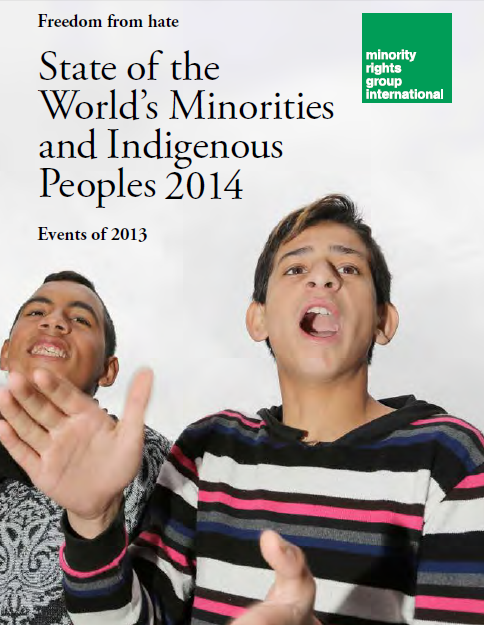 Hate crime towards minorities and indigenous peoples is a daily reality across Asia but is often ignored by the governments of the region, Minority Rights Group International (MRG) warns in its annual report. This year’s flagship report, State of the World’s Minorities and Indigenous Peoples 2014, is themed around ‘Freedom from Hate’ and shows that a worrying trend of vilification and hostility towards minorities and indigenous peoples has spread across the region.
Hate crime towards minorities and indigenous peoples is a daily reality across Asia but is often ignored by the governments of the region, Minority Rights Group International (MRG) warns in its annual report. This year’s flagship report, State of the World’s Minorities and Indigenous Peoples 2014, is themed around ‘Freedom from Hate’ and shows that a worrying trend of vilification and hostility towards minorities and indigenous peoples has spread across the region.
A key aspect of hate crime and hate speech is its invisibility, especially when governments or societies overlook or tolerate entrenched patterns of discrimination against particular communities, says MRG. Across Asia, governments have failed to provide adequate protection to its minority and indigenous populations.
“Hate crimes have been able to flourish in Asia largely as a result of the complicity or support of politicians who stand to gain from the persecution of minorities,” says Mark Lattimer, MRG’s Executive Director. “Hate speech goes unchallenged and crimes are often under-acknowledged and under-reported, enabling perpetrators to operate with impunity.” […]
• • •Myanmar: Comprehensive Solutions Needed for Recent and Long-term IDPs Alike
IDMC estimates that there are up to 642,600 internally displaced people (IDPs) in Myanmar, forced to flee their homes by armed conflict and inter-communal violence. The figure includes up to 400,000 people living in protracted displacement as a result of conflict in the south-east of the country – in southern Shan, Kayah, Kayin and Mon states and Bago and Tanintharyi regions – and 98,000 displaced by conflict in Kachin and northern Shan states since 2011. It also includes around 140,000 people displaced by inter-communal violence in Rakhine state since 2012, and more than 5,000 who fled their homes in Mandalay region in 2013. Disasters brought on by natural hazards and forced evictions linked to land grabs and the exploitation of natural resources have caused further displacement, including in areas where people have already fled conflict and violence.
Landmines and unexploded ordnance constitute a significant obstacle to IDPs’ return in Kachin, northern Shan and the south-east. Internally displaced women and girls in Kachin and northern Shan face the threat of sexual violence. Muslim IDPs in Rakhine are confined to camps, where they have little or no access to health care, education or livelihoods, and shelters are in need of maintenance in Rakhine, Kachin and northern Shan […]
• • •Thai Oversea Investment on Coal Mining in Myanmar: The Private Business Violating Human Rights and Causing Environmental Impact on Ethnic Communities along Tenasserim Border
Tanintharyi Hills or Tanintharyi Range is the geographical name of a roughly 1,700 km long mountain chain, part of the Indo-‐Malayan mountain system in Southeast Asia. The Tanintharyi Range covered with lush green forest and is a natural border line between Thailand and Myanmar. Across the hills in Myanmar side is Tanintharryi Region. The capital of this administrative region is Dawei which consists of diverse of ethnicity such as Dawei or Tavoy, Karen or Khayin and Mon. The local languages spoken by majority of the population are Tavoyan and Karen. In the past, the areain which bordering near Kanchanaburi province of Thailand was a former war zone between Karen ethnic group and Burmese junta government. It was intense conflict war zone during 1996 -‐ 1997 until cease fire agreement between the Burmese junta and the Karen National Union (KNU) was signed in 2012 […]
• •Trafficking in Persons Report 2014
Burma is a source country for men, women, and children subjected to forced labor, and for women and children subjected to sex trafficking in other countries. Burmese men, women, and children who migrate for work abroad, particularly to Thailand and China, are subjected to conditions of forced labor or sex trafficking in these countries. Poor economic conditions within Burma continue to drive large numbers of Burmese men, women, and children to migrate through both legal and illegal channels for work primarily in East Asia, as well as destinations including the Middle East, South Asia, and the United States. Men are most often subjected to forced labor, often in the fishing, manufacturing, and construction industries abroad. Women and girls are primarily subjected to sex trafficking or domestic servitude. The large numbers of migrants seeking work in Thailand’s fishing and domestic work sectors do so outside formal channels. Some Burmese men in the Thai fishing industry are subjected to debt bondage, passport confiscation, or false employment offers; some are also subjected to physical abuse and are forced to remain aboard vessels in international waters for years […]
• • •
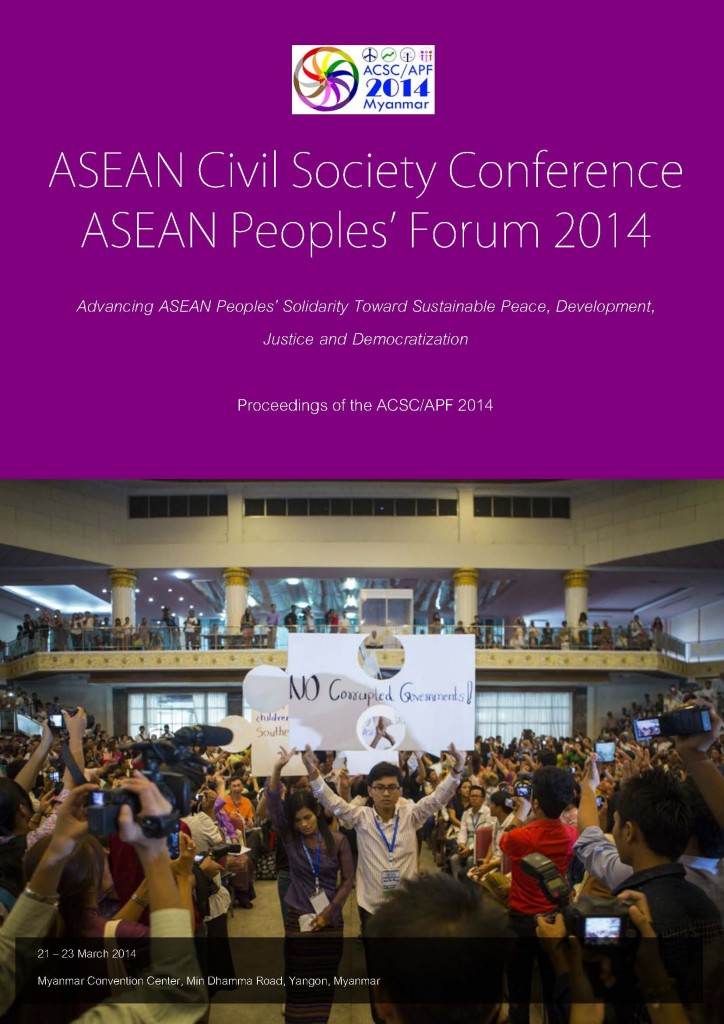
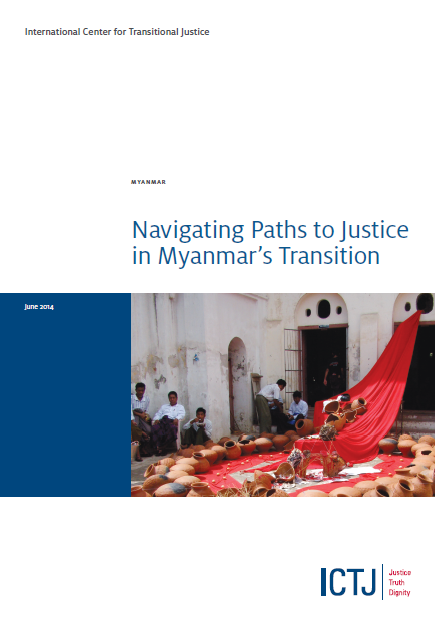
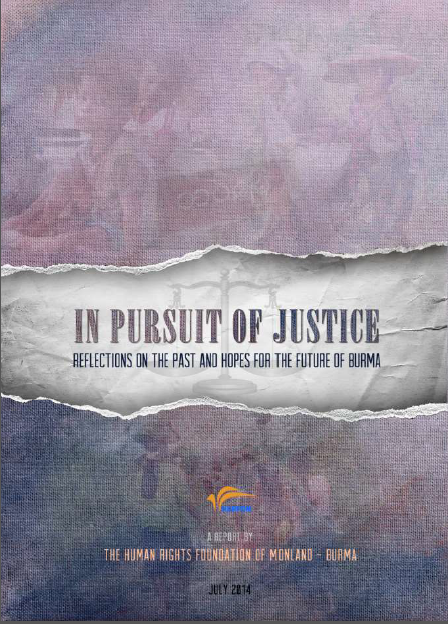
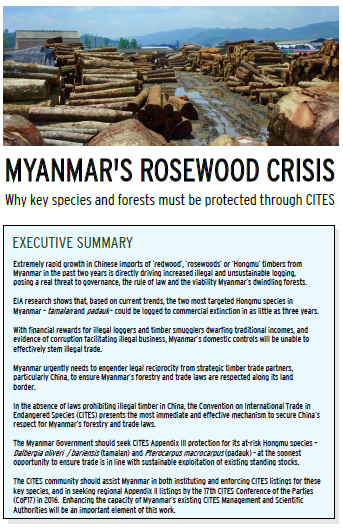
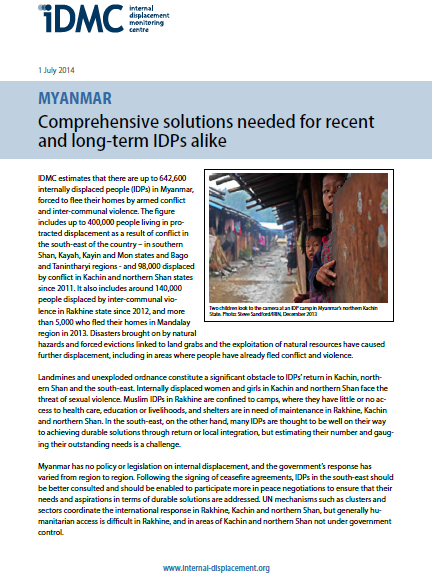
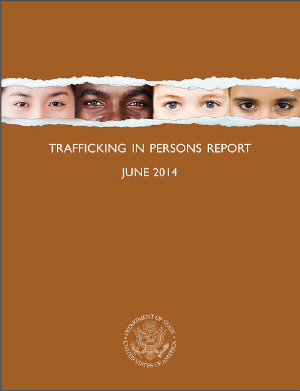








 All posts
All posts